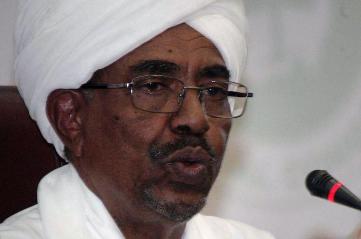US cautiously optimistic about Sudanese president’s call for political dialogue
February 26, 2014 (WASHINGTON) – The United States said the world will be “watching Sudan carefully” to see what emerges from president Omer Hassan al-Bashir’s call last month for comprehensive political dialogue that would bring together all political forces as well as rebel groups.

But Booth warned that the Sudanese government should not think the US will be sold on any political process that does not lead to real reform.
“Sudan’s conflicts are indicative of a widespread failure to govern equitably and inclusively, and the international community must not allow Khartoum to continue obscuring national issues by painting them as isolated regional conflicts, nor can we allow them to pass off as credible any superficial national process that does not include and empower representation and participation from all levels and regions of Sudanese society,” he said.
“As part of this engagement, it is critical that we unite the international community to show Khartoum that change is both necessary and beneficial,” Booth added.
Bashir addressed the nation announcing a 4-point plan for reform “to stop the war and bring peace, free political society, fight against poverty and revitalize national identity”, calling for political forces to engage in dialogue to agree on the implementation items though he did not specify practical steps to do so.
His speech drew widespread criticism for failing to rise to the level of major surprise as described by Sudanese officials prior to it.
The Sudanese leader said that rebel groups will be accepted into the dialogue only if they lay down arms. But the rebel umbrella known as the Sudan Revolutionary Front (SRF) has brushed aside Bashir’s offer.
The opposition National Umma Party (NUP) and the Popular Congress Party (PCP) are the only opposition parties who so far announced their acceptance to Bashir’s call for national dialogue.
The US official said that Washington is working with other parties such as China, United Kingdom, Norway, African Union (AU), Ethiopia, Egypt and Qatar to pressure Sudan into embracing genuine reforms.
He also cautioned that any improvement in US -Sudanese relations “is predicated on genuine and sustained improvements in how Sudan treats its citizens and adheres to its international obligations”.
Sudan has refused to issue Booth a visa to make a second visit since his appointment last year unless he comes with a specific agenda for normalizing ties through lifting sanctions and removing the country from the list of states that sponsor terrorism.
Khartoum also mentioned reciprocity in light of Washington’s refusal to issue Bashir a visa to travel to New York for the United Nations General Assembly (UNGA) meetings last September.
SOUTH SUDAN WARRING PARTIES VIOLATING TRUCE
On South Sudan conflict, Booth accused both government and rebel forces of violating the cessation of hostilities agreement brokered by the Intergovernmental Authority on Development (IGAD).
“Both parties have continued to violate this agreement and commit abuses against civilians, most recently with the anti-government forces’ assault on Malakal, and before that pro-government forces’ attacks on Leer and Godiang” he said.
“A true cessation of hostilities is our most pressing priority, and the United States Government is providing significant financial support to the Intergovernmental Authority on Development (IGAD)-led Monitoring and Verification Mechanism which will monitor and identify violators of the cessation of hostilities agreement,” the US official added.
Booth also said that the US is “deeply concerned by reports of serious human rights abuses and violations that have been committed throughout South Sudan by both parties to the conflict, including those reported in the UN’s first report on abuses committed since the conflict began”.
He criticized Juba for “progressively” restricting political competition in the country including within the ruling Sudan People Liberation Movement (SPLM) and also curbing free press and civil society groups.
Violence erupted in South Sudan last December in Juba following clashes between rival tribe members within the presidential guards, with president Salva Kiir accusing former vice-president Riek Machar of masterminding an alleged coup attempt to overthrow the government.
Government forces loyal to Kiir, at times assisted by Ugandan troops, battled pro-Machar forces for control of strategic areas.
The UN estimates some 900,000 people have been internally displaced since the conflict broke out.
The envoy stressed that South Sudan government must not be allowed “to return to business as usual with a quick fix and political accommodations for the main protagonists, for the simple reason that this will not bring about a sustainable peace”.
“A number of other senior U.S. officials and I have made clear that we, too, are not engaged in business as usual; as one sign of this, I would note that our security assistance to South Sudan is not going forward at this time, and that some of it is being re-programmed to support the regional verification mechanism,” he added.
(ST)
